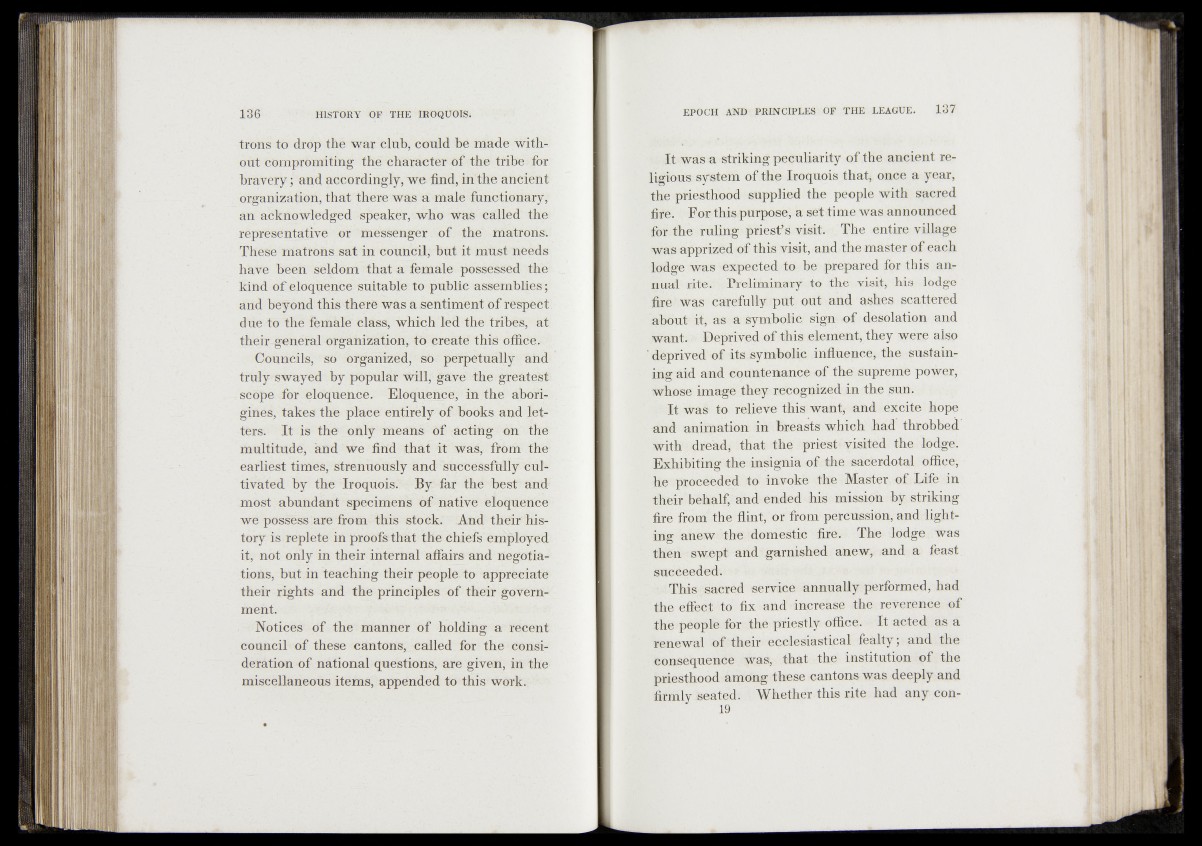
trons to drop the war club, could be made without
cOmpromiting the character of the tribe for
bravery; and accordingly, we find, in the ancient
organization, that there was a male functionary,
an acknowledged speaker, who Was called the
representative or messenger of the matrons.
These matrons sat in council; but it must needs
have been seldom that a female possessed the*
kind of eloquence suitable to public assemblies;
and beyond this there was a sentiment of respect
due to the female class, which led the tribes, at
their general organization, to create this office.
Councils, so organized, so perpetually and
truly swayed by popular will, gave the greatest
scope for eloquence. Eloquence, in the aborigines,
takes the place entirely of books and letters.
It is the only means of acting on the
multitude, and we find that it was, from the
earliest times, strenuously and successfully cultivated
by the Iroquois. By far the best anclr
most abundant specimens of native eloquence
we possess are from this stock. And their'history
is replete in proofs that the chiefs employed
it, not only in their internal affairs and negotiations,
but in teaching their people to appreciate
their rights and the principles of their government.
Notices of the manner of holding a recent
council of these cantons, called for the consideration
of national questions, are given, in the
miscellaneous items, appended to this work.
It was a striking peculiarity of the ancient religious
system of the Iroquois that; once a year,
the priesthood supplied the people with sacred
fire. For this purpose, a set time was announced
for the; ruling priests visit. The entire village
was apprized of this visit, and the master of each
lodge was expected to be prepared for this am-
nual rite. Preliminary to the visit,-his lodge
fire was carefully put out and ashes? scattered
about- it, as a symbolic, sign <of desolation and
want. Deprived of this element, they were also
' d% riv ^ p f 4tesyml^c.A.nfiitencej'-the-^u^nr
ing aid and c^ntenane^rf-the ^n|^me power,
whose image they recognized in the sun.
It was to relieve this want, and excite hop®
and animation in breasts which had' throbbed
with dread, that the priest^ visited the lodge.
Exhibiting the insignia of the sacerdotal Office,
he'proceeded, to invoke the Master of Life in
their behalf, and ended his mission by striking
fire from the flint, or from percussion, and lighting
anew the domestic fire. Thte>,lodge; was
then swept and garnished anew, and a feast
succeeded. ?
This sacred service annually performedr had
the effect to fix and increase the reverence of
the people for the priestly office. It acted4/as a
renewal of their’ ecclesiastical fealty; and the
consequence was; that the institution of the
priesthood among these cantons was deeply and
firmly seated; Whether this rite had any con-
l-9